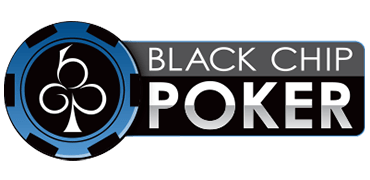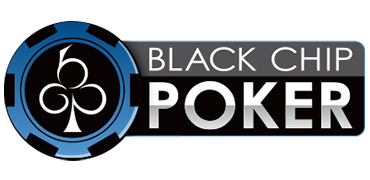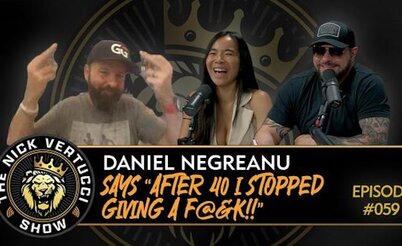Going From Kid Poker to Dnegs
Jonathan Jaffe: So I had a question. Dnegs, we hear all the time now. Kid Poker, I don't hear as much. When did that transition happen? It feels very seamless. Who was the first person to call you Dnegs?
Daniel Negreanu: Kid Poker to Dnegs evolution, when did it happen? The first person to ever call me Dnegs was Melissa Castello, which was my wife's Maid of Honor at the wedding. They've been friends for a long time and she just called me Dnegs and I'm like, "That has a good ring to it," you know, so I go with Dnegs. Some people still call me Kid Poker or whatever, but I mean, most people would call me Dnegs that know me.
Jonathan: Is there any well-known guy who still calls you Kid Poker a lot? I never hear it.
Daniel: As a joke maybe once in a while. I hear it from people like Phil Hellmuth, "Hey Kid Poker," you know, all that stuff. But realistically, nobody.
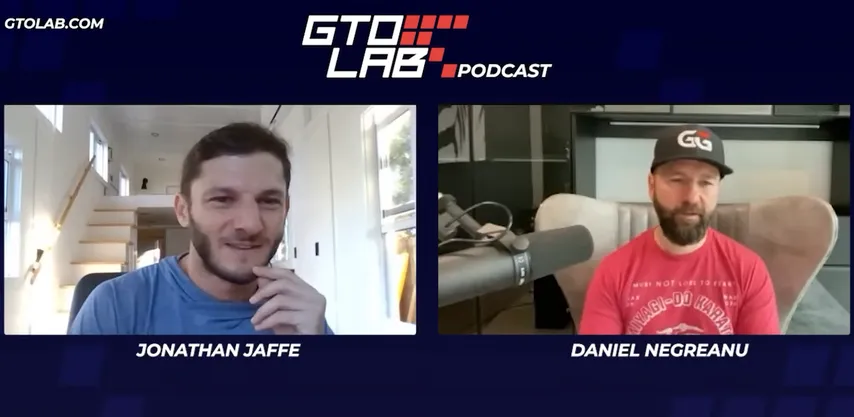
Old Dogs Must Learn New Tricks
Jonathan: Nice, nice. So nowadays, the big theme in my head when I think of Daniel, I think of you and Phil Ivey and Erik Seidel as the guys who not only survived but you've been there through it all and you're still playing high stakes, you're still winning at high stakes, you're still battling. And obviously, there were a ton of talented people back in '03 and even before that. What do you think made it so that the three of you are still around?
What's going on there as far as what do you think really kept you going?
Daniel: Well there's a couple of things. First and foremost, it's self-awareness, I think, right? That with the humility to realize that maybe there's stuff the younger generation is learning that you don't know. So rather than just say, "Oh, these kids today," actually you could learn a lot from these kids and learn what they're doing and how they're doing it. Then you combine the best of both worlds. You learn about solvers, you learn about modern theory, and you combine that with the wisdom that we've already had for 20, 30 years, and now you can create a pretty deadly player, you know?
And for me, I remember there was a moment, it was like 1999, 1998, and I was a young kid on the scene and I'm playing with Tom McEvoy and Brad Daugherty, who were the big pros at the time. And I was way more aggressive than they were and they were like, "Oh, these kids today," and I'm like, "I'm better than you now. Already I'm better, I could crush you."
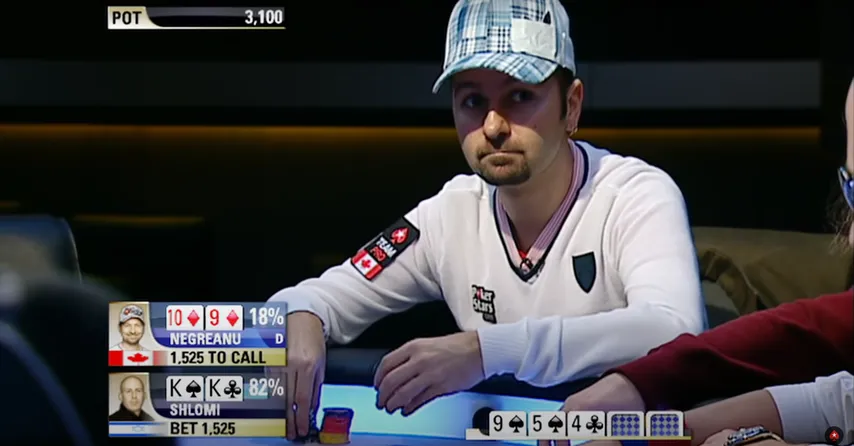
I remember saying to myself, "Never be that guy. Never rest on your laurels, never be complacent, never get to a point where you feel like you've got it all figured out." There will never be a time that any human being gets to the pinnacle where they go, "I'm the perfect poker player."
There are always areas to improve. And as you said, the game changes all the time. So things that are really working well for a period, you know, may stop working and you have to come up with new ideas.
(Freerolls are a quick way to improve without any cost, plus compete for real money)
Daniel Sees the Value of Studying Poker
Jonathan: Do you remember any kind of pivotal moments where you're like, "Hey, I need coaching, these guys are better than me at this type of thing," or moments where you were like, "Shit, I should look at a pre-flop chart here. Like maybe a year ago I was sure I was better than those guys and this is it's time to get better."
Daniel: There was a real significant moment actually. It was the Poker Masters. This is when the sort of the Germans came on the scene. It was Steffen Sontheimer who, in a couple of spots, just really outplayed me, like clearly. Okay, he outplayed me in spots.
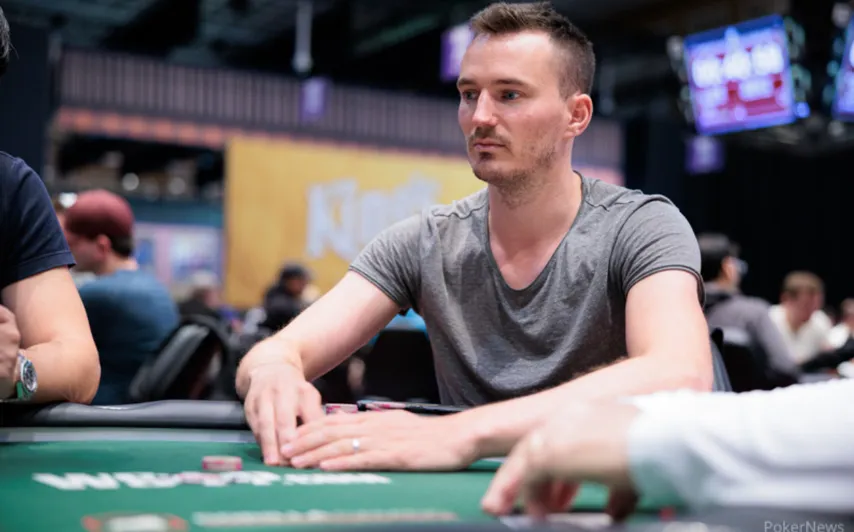
Then I heard him talking about the hand and he said something like, he said "combos". He's like, "Well, you don't have any Queen-Ten combos," and I was like, "What is that?"
I'd never heard anyone talk about a combo. I didn't know there were 16 combos of Ace-King, right?
So it kind of dawned on me, I'm like, "All right, well they're working on stuff that seems pretty basic to them. They're having regular conversations about combos and I don't even know what that is." So I felt like at that point, I felt like I was getting outplayed, especially specifically by Steffen in that spot, that I was like, "All right, well what is out there? I don't know how to use the computer stuff, so I need to hire people that are, you know, well-versed in that."
And I think that's part of where the self-awareness and humility come in, to realize that, okay, well I don't, I'm not an expert in this stuff, so let's hire an expert. That's not even saying like, "Okay, they're better than me," or "They're..." It's irrelevant really. It's just about opening a door for me that, you know, I wouldn't have been able to open by myself.
Jonathan: Yep, that resonates with me a lot. I'm 37, but for my age, I was very, very late to any solver work, any pre-flop charts. I don't know what year I looked at my first pre-flop charts, but it's embarrassingly late.
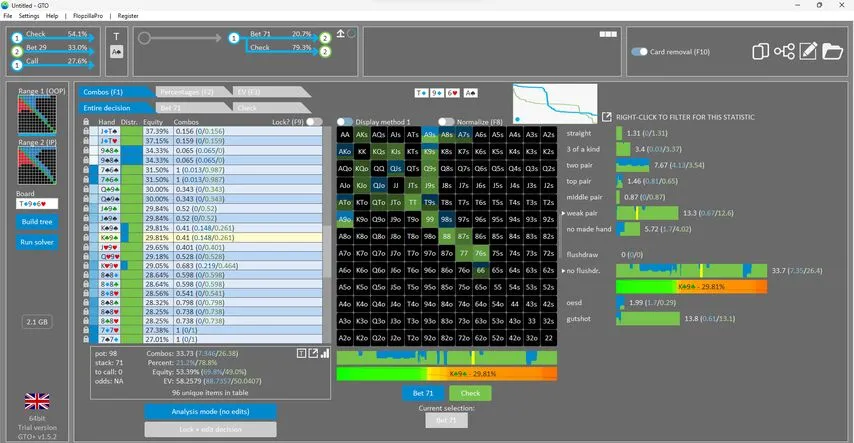
I never played with a HUD online and I didn't have the humility and I didn't have the self-awareness. I kind of treated like being good at poker is like there's a hierarchy. You're either better than someone or you're worse. But they can be better than you at 20 things and you're better than them at 20 different things. And you know, there's stuff to learn from people, and maybe you have a higher overall ROI, but there's still a lot there.
Daniel: Yeah, no, I can totally relate to what you're saying. Like you said, it takes that self-awareness to look at the example, like Phil Hellmuth, right? There's a lot of stuff that he's done over the years that has really been effective. And like you said, there are some things he does better than everybody else, but there's so much else that if he worked on that or had the humility to say, "You know what, let me learn something here and there," you know, that would just make him, that would just improve his game. But he won't allow himself to do that because for him, you know, it's ego-related.
And for me, I didn't have that. I always said, "Look, these guys are young. What are they doing now?" you know? And sometimes I would look at some of the stuff, I'm like, "Yeah, that's bad, they're gonna stop doing that eventually." There was a period I think it was like 2008 to 2011 where everybody was like 6-betting Ace-Six offsuit. It was like, "Ooh, who's bigger?" you know, like re-raise, raise, I'm like, it was annoying to play against because I couldn't even see any flops. But it was like, "This is so bad."
I knew it was bad then and eventually they either went broke or learned.
Daniel's WSOP Plans
Jonathan: So I've heard you say that this summer at WSOP, your focus is not Player of the Year. Your focus is to put a little more energy into the high buy-ins, play when you want to play, play the tournaments you want to play.
Also, what does success mean to you in poker?
Daniel: I think how I define success sort of brings me back to the purity of what the Poker Hall of Fame was many, many years ago. There was one line in there that says "stood the test of time", right? And for me, what that meant was, you know, into your later years, you're still able to compete at the highest levels. You know, you might not be the best necessarily, but you're there, you know, and you're within that.
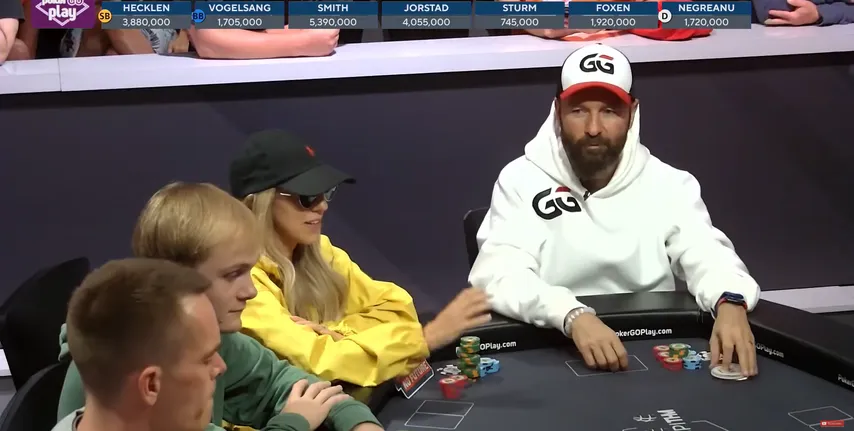
So I always want to be able to compete at the highest levels, you know? And if there was a time where I felt like, you know, it's too difficult, maybe I would, yeah, well, I probably never quit. I would just take it, and I would just try to learn, you know? And if I never got there, I would continue to strive to be, because I'm always a goal-oriented kind of person.
But overall, I guess to answer the question, for me, success is year in and year out, posting winning years.
I had a losing year last year. It was my first significant one in like 20 years, you know?
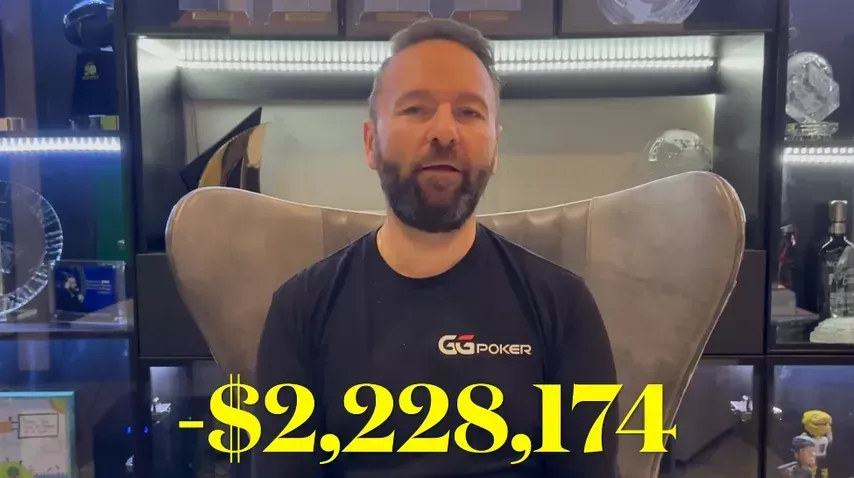
I kind of look at a losing year and it kind of motivates me even more because it's an opportunity to look at, "All right, what wasn't working? What do I need to adjust? What things do work?"
As you get older and you play more, you start to differentiate, "Okay, was I just playing bad or was I just running horrendously?" Or a combination of both? And now I'm 49 and I have a pretty good idea, you know, of when it's me or when it's just, you know, variance.
Daniel Negreanu's Thoughts on AI
Jonathan: Makes sense. Off poker topic, ignoring poker's part in all this, what are your thoughts on AI? Are you more bullish, or bearish? Do you think, are you optimistic about it helping humanity more or really worried?
Daniel: So AI, right, it's both incredibly exciting and mind-blowing, like what's potentially, you know, it can do for us in terms of Neuralink and all these other things.
In that same vein, it's also incredibly scary, right? You know, there's been enough movies made about how AI eventually decides that the problem with the planet is us, you know, it wants to replace us, you know?
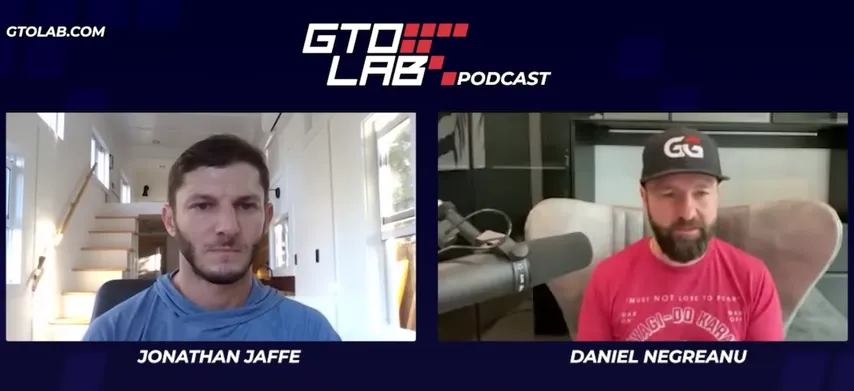
So I think we'll adapt. I think that, I think it'll overall enhance, but I think, you know, it's very, in the wrong hands, it can be a very dangerous tool. And what scared me probably, one of the recent ones was, it was the Google one where people were posting an image and you could say, "All right, show me a Viking from the 1800s," and it would be like a black guy, an Asian woman, an Indian guy, not one single white person. It was like it was impossible to get a white guy no matter what you put in there. You put, "Show me a Pope," no white people, never. And I was like, "Whoa." Right?
So the scary part there is that's AI, but the algorithm was created by people with an agenda, if you will, right? So what if that agenda is like far more perverse than just diversity? That's scary, you know, in terms of what could happen there. Even with social media algorithms, like TikTok for example, agenda-based things like that, I think, are a real concern, a real threat to our safety and national security,
Jonathan: Definitely. Yeah, scares the shit out of me. Although, it's fun too. I've kept a journal for like 10 years, and I put it into like Claude 3 the other day and was like, "Tell me some things I don't want to hear about myself," and it was pretty sweet. It was like, "Yeah, that's some pretty good insight."
Daniel Plays The Superior Dan Game
Jonathan: You ready? It's the Superior Dan Game.
Daniel: Okay let's go.
Jonathan: All right, so the contestants are Daniel Negreanu, Daniel Cates AKA Jungleman, Daniel Dvoress, and Dan Smith, Cowboy Dan.
I'll ask you a question, you tell me who you think has the best chance.
– Who would win Survivor: Daniel Smith, Dan Cates, Daniel Dvoress?
Yeah, well, I'm a Survivor buff and I love the show, and I have a close ally in Boston Rob, so I'm going to pick myself. You know, being best at maybe the social aspect of the game. Hopefully there's not too big of a – if people know who I am, I think I'm less, I have a smaller chance of winning. But me, I feel like we got to take that part out.
The one that I would think would be sneaky good would be Daniel Dvoress, although I think he might rub some of them the wrong way if he gets annoying. I don't know.
– Who would cook a better three-course dinner?
For some reason, I feel like Dan Smith is the most worldly in that regard, so I'm going to go with Dan Smith.
– Who takes criticism well?
I've probably taken the most by a long shot. So who's the best at taking criticism? Yeah, I'm the most experienced taking criticism, so it's going to have to be me.
– Who would make the best break dancer?
I grew up a B-boy. I don't know that any – it's definitely not Jungle Man. So, I'm again, I'm going to say myself. I know this is crazy, but I think, I mean, I did break dance as a kid. I was in a crew.
– Who would make the best criminal defense attorney?
I'm going to go with Daniel Dvoress on that one.
– Who would be better at changing a flat tire?
I'm going to go – changing a flat tire, I'm going Dvoress again.
– Who is better at compromising?
I'm going to say for compromising, I'm going to go with Dan Smith.
– Who would have the highest hourly if you all had to play $1/$3 public for a year, $1/$3 live public game, with the idea that you're all relying on it for income?
I have a special advantage because it's me, and people, I can get people to play goofy and play bad. So I'm not saying I would be the best player, but I think I can get, I could have the highest ROI because I can get people to play much worse than they would against the other people. So I'm going to take myself.
– All right, last two on two volleyball. Canadians versus Americans.
Okay, so I was on my high school volleyball team, but I'm short. They're all short. It sort of negates it. Dan Dvoress seems very athletic. I'll just, I'll say we win. I'll go with, you know, Team Canada.
– How about two on two basketball?
Two on two basketball, me and Dan Dvoress, me and Dan Dvoress for sure.
– How about planning and executing a bank heist successfully?
I'm going to go, I'm going to go with Jungle and Dan Smith. They're going to figure out all the stuff.
– And paintball?
I'm terrible at that game. I would definitely bring the team down. So I go, I go with Team USA.
(To catch the entire hour-plus-long interview between Jonathan and Daniel, visit the official YouTube video.)















